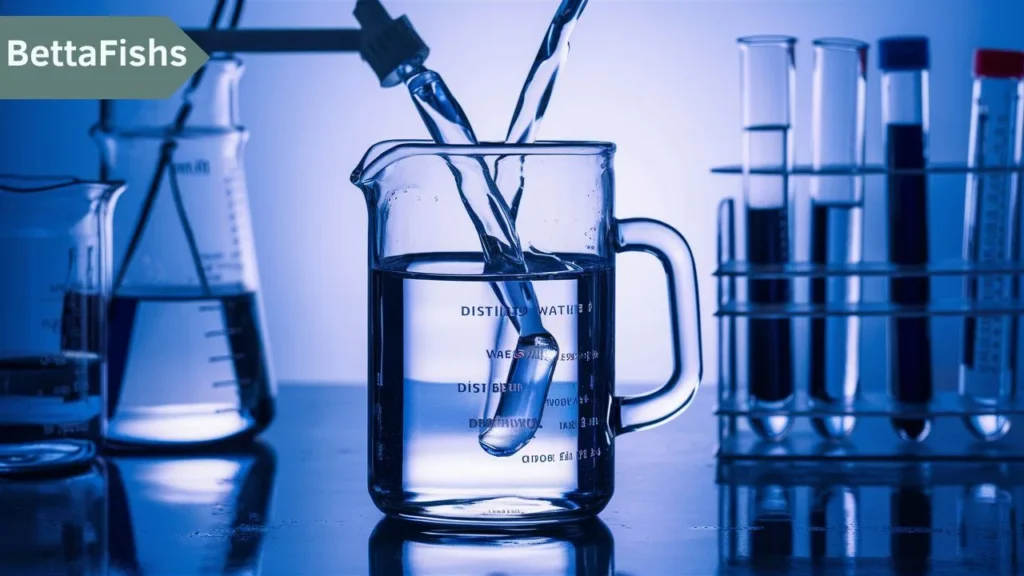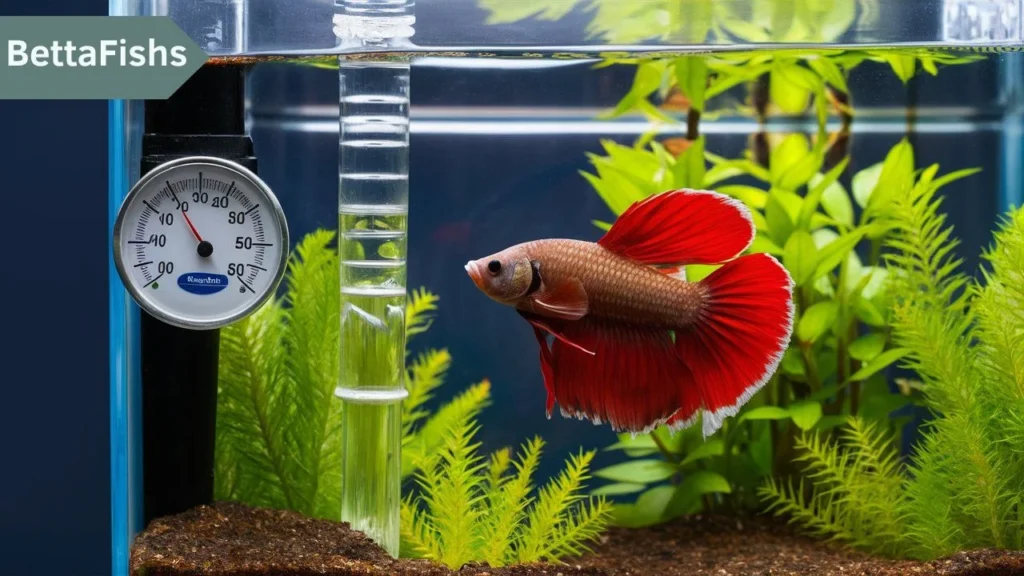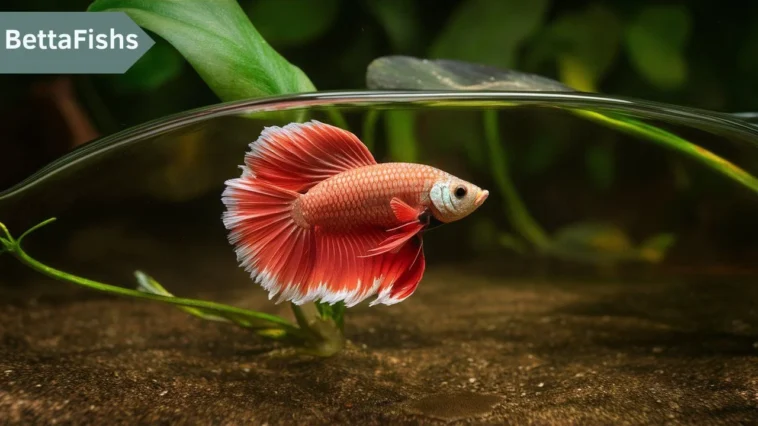Betta fish, often known for their vibrant colors and flowing fins, are a popular choice for both beginner and experienced aquarium enthusiasts. However, maintaining a healthy betta fish isn’t just about providing food and shelter. One of the most critical factors in ensuring your betta thrives is the quality of the water in its tank. But what about distilled water? Can you use distilled water for a Betta fish? Let’s dive into the details to find out.
Distilled Water
What Is Distilled Water?
Water that has undergone a distillation process is known as distilled water. This process involves boiling the water until it turns into steam, then condensing that steam back into a liquid. The result is water that is free from impurities such as minerals, salts, and other contaminants.
The Process of Distillation
Water is heated to its boiling point during the distillation process, which causes it to evaporate. The steam rises, leaving behind most of the dissolved substances and impurities. The steam is then captured and cooled, turning it back into liquid water. This method effectively removes most contaminants, making distilled water extremely pure.
Common Uses of Distilled Water
Distilled water is commonly used in applications where water purity is essential, such as in laboratories, for medical purposes, in steam irons, and for automotive batteries. It’s also sometimes recommended for watering certain plants that are sensitive to minerals found in tap water.
Betta Fish and Water Requirements
Natural Habitat of Betta Fish
Originating in Southeast Asia’s shallow rice paddies, ponds, and leisurely-moving streams, betta fish are used to live in warm, relatively soft water. The natural habitat of betta fish is rich in organic matter, and the water is often slightly acidic to neutral in pH.
Ideal Water Parameters for Betta Fish
For betta fish to thrive in captivity, replicating their natural water conditions as closely as possible is key. The ideal water parameters for betta fish include:
- Temperature: 76-82°F (24-28°C)
- pH: 6.5-7.5
- Hardness: Soft to moderately hard water (3-5 dGH)
- Ammonia, Nitrites, and Nitrates: 0 ppm (parts per million)
Why Water Quality Matters
Maintaining proper water quality is crucial for the health and well-being of your betta fish. Poor water conditions can lead to stress, disease, and even death. Betta fish are particularly sensitive to changes in water chemistry, making it essential to keep their environment stable and clean.

Can You Use Distilled Water for a Betta Fish?
The Pros of Using Distilled Water
On the surface, distilled water might seem like an excellent choice for a betta tank because it’s free of harmful chemicals and impurities commonly found in tap water, such as chlorine and heavy metals. Its purity means you won’t have to worry about harmful additives that could affect your betta.
The Cons of Using Distilled Water
However, the very purity of distilled water is also its downside. Distilled water lacks the essential minerals and trace elements that betta fish need to stay healthy. These minerals help to maintain the fish’s electrolyte balance and support other bodily functions. Without them, your betta may suffer from mineral deficiencies, which can lead to a weakened immune system and other health problems.
Potential Risks and Problems
Using only distilled water in your betta tank can result in several issues:
- Osmotic Shock: The lack of minerals in distilled water can disrupt the osmotic balance in your betta, leading to osmotic shock—a condition that can be fatal.
- pH Instability: Distilled water tends to have a lower and more unstable pH, which can fluctuate easily, causing stress to your betta fish.
- Mineral Deficiency: Essential minerals like calcium and magnesium are absent in distilled water, which are crucial for your betta’s health.
Why Distilled Water Alone Is Not Suitable
Lack of Essential Minerals
Betta fish rely on minerals like calcium and magnesium in their water for various physiological processes, including bone development and maintaining a healthy slime coat. Distilled water, devoid of these minerals, can deprive your betta of what it needs to stay healthy.
The Importance of pH Balance
Maintaining a stable pH level in your betta’s tank is vital for their well-being. Distilled water can have an unpredictable pH, which might fluctuate without the buffering capacity provided by minerals. This instability can stress your betta, making them more susceptible to illness.
The Risk of Osmotic Shock
Osmotic shock occurs when the balance of salts and minerals between the fish’s body and the surrounding water is disrupted. Since distilled water lacks these essential elements, your betta could suffer from osmotic shock, leading to severe health issues or even death.
How to Safely Use Distilled Water in a Betta Tank
Mixing Distilled Water with Tap Water
One way to safely use distilled water for your betta is by mixing it with treated tap water. This combination can help balance the mineral content while reducing any harmful chemicals that may be present in tap water. A common ratio is 50% distilled water to 50% tap water, but you should test and adjust based on your specific water conditions.
Adding Necessary Minerals and Conditioners
To make distilled water safe for bettas, you can add a water conditioner designed for aquarium use, which often contains essential minerals. Some products are specifically formulated to remineralize purified water, ensuring your betta gets the necessary nutrients.
Monitoring pH and Hardness Levels
Regularly test the water in your betta tank to monitor pH, hardness, and other key parameters. This will help you maintain a stable environment, making adjustments as needed to keep your betta healthy.
Alternative Water Sources for Betta Fish
Tap Water: Pros and Cons
Tap water is a common choice for betta tanks because it’s readily available and contains essential minerals. However, tap water often contains chlorine, chloramines, and heavy metals, which can be harmful to bettas. Treating tap water with a conditioner can make it safe for your fish.
Bottled Spring Water
Bottled spring water can be a good alternative as it usually contains natural minerals that benefit your betta. However, it’s important to test the water to ensure it falls within the ideal parameters for betta fish, particularly regarding pH and hardness.
Using Reverse Osmosis (RO) Water
Reverse osmosis (RO) water is similar to distilled water in that it is very pure, but it can be remineralized to provide the necessary nutrients for your betta. Many aquarists use RO water mixed with tap water or add specific remineralization products to create a suitable environment for their fish.

How to Get Your Betta Ready with the Ideal Water
Step-by-Step Guide to Water Preparation
- Test Your Source Water: Before adding water to your betta tank, test it for pH, hardness, ammonia, nitrites, and nitrates.
- Condition the Water: Use a water conditioner to neutralize harmful chemicals in tap water.
- Adjust pH and Hardness: If needed, use products to raise or lower the pH and hardness to the desired levels.
- Mix Water Sources: If using distilled or RO water, mix it with conditioned tap water to achieve balanced water chemistry.
- Warm the Water: Ensure the water is at the correct temperature (76-82°F) before adding it to the tank.
Testing and Adjusting Water Parameters
Regular testing is essential to maintaining a healthy betta tank. Use test kits to check parameters like pH, hardness, and ammonia levels. Adjustments should be made gradually to avoid shocking your fish.
Regular Water Changes and Maintenance
Perform regular water changes (20-25% weekly) to keep the tank clean and the water quality high. This aids in the removal of waste and the replenishment of vital minerals.
Common Mistakes in Betta Fish Care
Overlooking Water Quality
Neglecting to monitor and maintain water quality is one of the most common mistakes betta owners make. Poor water conditions can quickly lead to stress, disease, and death.
Ignoring pH and Hardness Levels
Many betta owners focus solely on temperature and forget about the importance of pH and hardness. However, these parameters are crucial for maintaining a healthy environment for your fish.
Using Inappropriate Water Sources
Choosing the wrong type of water, such as pure distilled water, without proper adjustments can be detrimental to your betta’s health. Always ensure the water you use meets the specific needs of your fish.
Conclusion
In summary, while distilled water is incredibly pure, it is not suitable for use alone in a betta tank due to the lack of essential minerals and the potential for pH instability. To ensure your betta fish thrives, it’s important to provide water that closely mimics their natural habitat, which includes the necessary minerals and stable pH levels. If you choose to use distilled water, make sure to mix it with conditioned tap water or add the necessary minerals and conditioners to create a safe environment. Proper water preparation and regular maintenance are key to keeping your betta healthy and happy.
FAQs
Is distilled water ever safe for betta fish?
Distilled water can be safe if properly conditioned and mixed with tap water to reintroduce essential minerals. However, using it alone is not recommended.
How can I make tap water safe for my betta?
Use a water conditioner to neutralize harmful chemicals like chlorine and chloramines, and test the water to ensure it meets the ideal parameters for betta fish.
Can I mix distilled water with tap water for my betta?
Yes, mixing distilled water with tap water can help balance the mineral content and reduce harmful substances. Just make sure to test and adjust the water accordingly.
What symptoms can indicate low-quality water in a betta tank?
Signs of poor water quality include cloudy water, foul odor, algae overgrowth, lethargic behavior in your betta, and visible signs of stress or illness.
How frequently should the water in my betta tank be changed?
It’s recommended to change 20-25% of the water in your betta tank weekly to maintain optimal water quality and keep your fish healthy.




